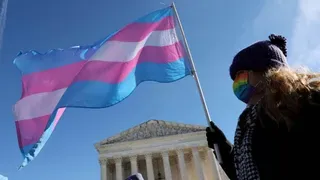September 14, 2020
Startling Statistics on LGBTQ Safety in Canada
Kevin Schattenkirk READ TIME: 2 MIN.
A recent study by Statistics Canada's Centre for Gender, Diversity, and Inclusion Statistics reveals stark and unsettling information about LGBTQ safety, Radio Canada International reports.
Statistics Canada has said that this is the first widespread study of this nature to include information on transgender and nonbinary citizens. The 2018 study finds:
� Gay, lesbian, bisexual and other sexual minority people in Canada were almost three times more likely than heterosexual Canadians to report that they had been physically or sexually assaulted in the previous 12 months in 2018.
� They were more than twice as likely to report having been violently victimized since the age of 15.
� Sexual minority Canadians were also more than twice as likely as heterosexual Canadians to experience inappropriate sexual behaviours in public, online or at work in the previous 12 months.
Additionally:
� Nearly one million Canadians aged 15 or older identified as part of a sexual minority group, and another 75,000 Canadians identify as transgender.
� 59% of people from sexual minorities said they had been assaulted at some point since the age of 15, compared with 37% among heterosexuals.
� 11% of sexual minority Canadians said they had been sexually or physically assaulted in the previous 12 months, compared with 4% of heterosexual Canadians.
� The research also shows sexual minority Canadians are also more than twice as likely as heterosexuals to endure inappropriate sexual behaviour in public. (57% said they had such an experience in the previous 12 months, compared with 22% reported by heterosexuals.)
� A similar pattern exists in the workplace, where inappropriate jokes and unwanted sexual attention were more frequently experienced by sexual minorities, the study found.
Finally, 32% of LGBTQ Canadians report poor to fair mental health compared with 11% of heterosexuals; and 40% of LGBTQ people reported contemplating suicide, which is nearly three-times higher than heterosexual subjects at 15%. About 3 in 10 LGBTQ Canadians reported using drugs or alcohol as a coping mechanism for abusive and violent experiences, almost three times more than heterosexual victims.
Kevin Schattenkirk is an ethnomusicologist and pop music aficionado.







